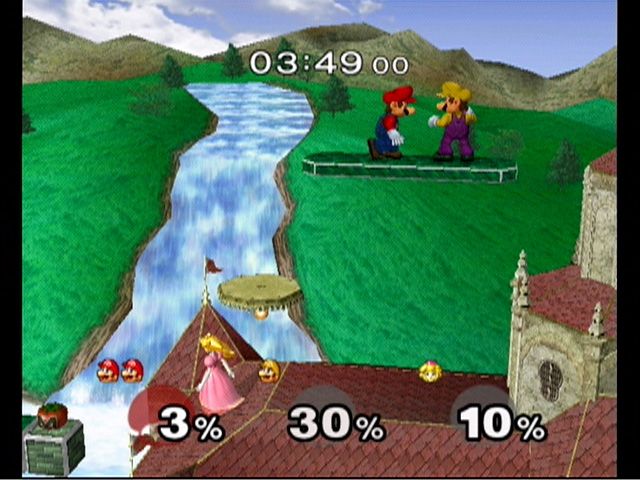Oh Nintendo. As people following this blog can easily see, we have more than a little fondness for the output resulting from the playing card and igo board maker’s lucrative side venture into video games. Everyone wants to make them like Nintendo, but no one else actually does, or seems to be able to, or can even pin down what that would mean.

Maybe it’s because, despite being one of the biggest companies in the world, it still feels like a small company, in some ways? Or that they don’t seem as beholden to the bleeding knife of capitalism as other companies are? (This is illusory, of course.) Maybe it’s their adherence to Japanese corporate traditions, or the influence of Shigeru Miyamoto, or their toymaker’s vibe?
But there is a dark side to them as well: they can be incredibly controlling regarding their IPs. Years ago they reached out to a fan
They have what they would call a staunch anti-piracy stance, which you’d expect of most software companies sure, but what that ends up meaning, due to the fact that 99% of their software is made for closed systems like consoles and mobile (we haven’t forgotten about the Animal Crossing PC clock!), they have absolutely no modding support.
This has resulted in a zero-tolerance policy regarding infractions concerning the competitive Smash Bros. scene. Project M is a popular fan-made hack of Super Smash Bros. Melee that it feels like even mentioning will cause Nintendo to affix a red letter to your organization.

Kotaku has reported that there is currently another round of fan backlash over Nintendo’s guidelines over the use of Smash Bros. games in community tournaments. There is good reason: the rules read like they were written by people ignorant of the extent of competitive Smash play.
Nintendo is also demanding tournament prices not rise above $5,000, and is disallowing sponsorships. While it’s true that Nintendo is justifiably a bit cautious about the edginess surrounding esports tournaments, which resulted in sexual misconduct allegations back in 2020, there is definitely a middle ground between preventing situations like that and hamstringing a burgeoning esport, and Nintendo should pursue it, or risk destroying this entire scene.
As I said, I am not a lawyer. Someone who is, is Moonie, who used his incredibly ZeFrank-sounding voice to made a Youtube video breaking down Nintendo’s new guidelines. He doesn’t seem as worried about them as others (the thumbnail to his video is a giant DON’T PANIC). Here is his 18-minute dive into the guidelines, but a major point is that they primarily affect unaffiliated community tournaments, which as a class are distinct from majors, which would have an explicit agreement with Nintendo that would make the limitations in these guidelines not apply. In order words, while some of the furor is justified (other companies like Capcom aren’t as limiting of community events), a lot of it is the result of failed Nintendo messaging. Nintendo does have a lot of trouble communicating things like this that won’t get everyone’s roar up.
But even with that proviso, it’s still not great? Nintendo is still claiming that fan modifications are entirely forbidden, even among community tournaments.
What do I think? Nintendo could fix all of this by changing their EULA by explicitly recognizing and allowing for fan work, but in a way that asserts the primacy of their IP. Again, IANAL, but if they put their own lawyers to work to try to forge a system whereby fans could continue to build off of their work, they might be able to do it in such a way that they don’t risk damaging their properties. Other companies have done it, notably Sega, who blessed fangame creators in a way that generated their megahit Sonic Mania. What is causing Nintendo’s overreaction here, in my onion*, is their institutional distaste for even acknowledging that people are hacking their systems and modifying their games in the first place.
* typo made on purpose
I must acknowledge, there would be a whole flowchart of knock-on effects if Nintendo were to acknowledge and accept fan modifications, and probably not all of them would be to Nintendo’s benefit. Particularly, just to modify their software requires breaking their system security, which doesn’t necessarily imply piracy but does mean opening up the system sandbox and maybe revealing system secrets like keys. Sega doesn’t make consoles any more, so it’s not an issue they have to worry about now.
But what is obvious is that they’ve frequently attacked a vibrant community, and making a lot of enemies out of players. There has to be a good solution to this.
Super Smash Bros. Fans Freak Out About New Nintendo Rules (Kotaku)
A Lawyer Analyzes Nintendo’s Tournament Guidelines (Moon Channel on Youtube, 18 minutes)
